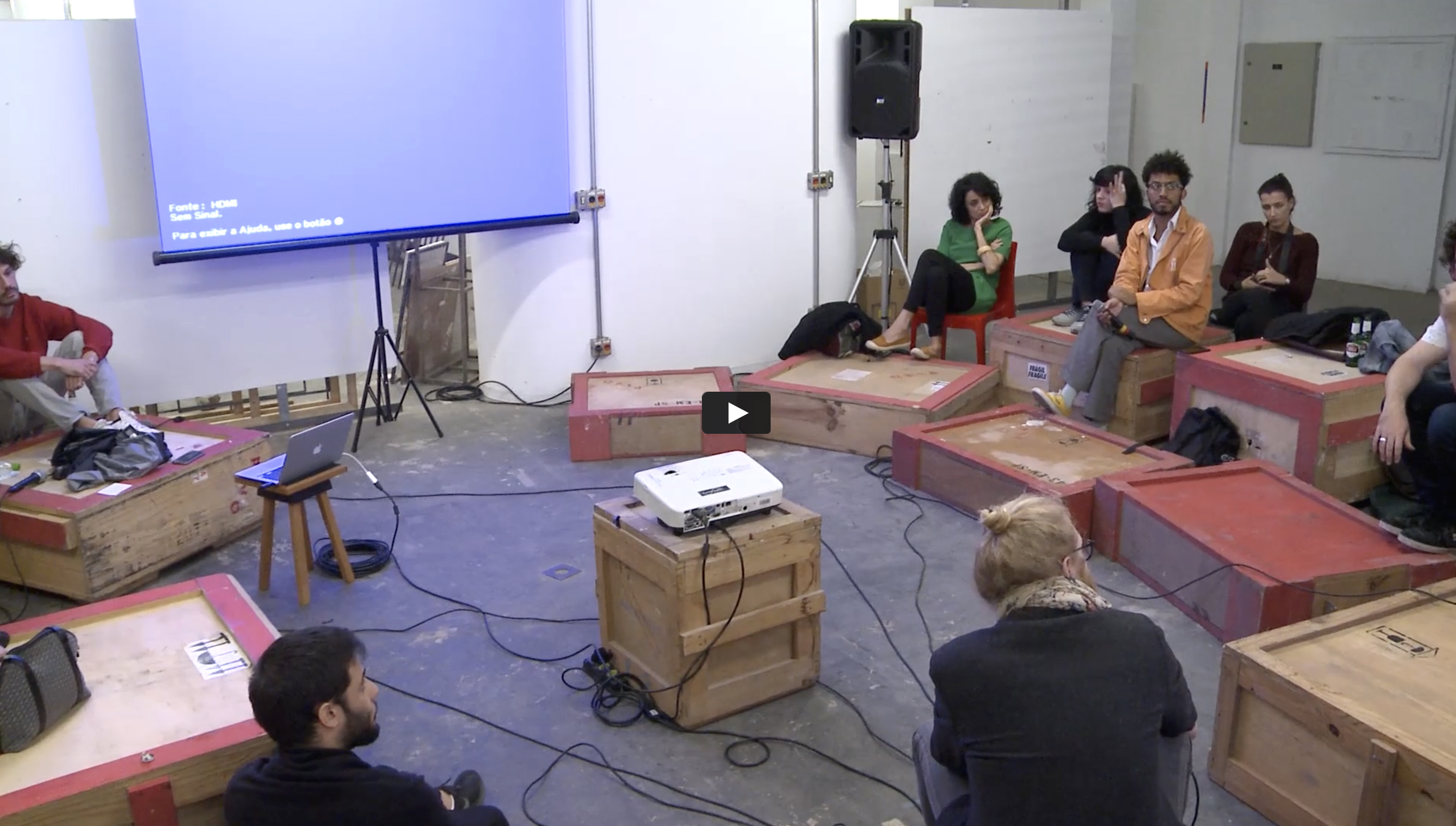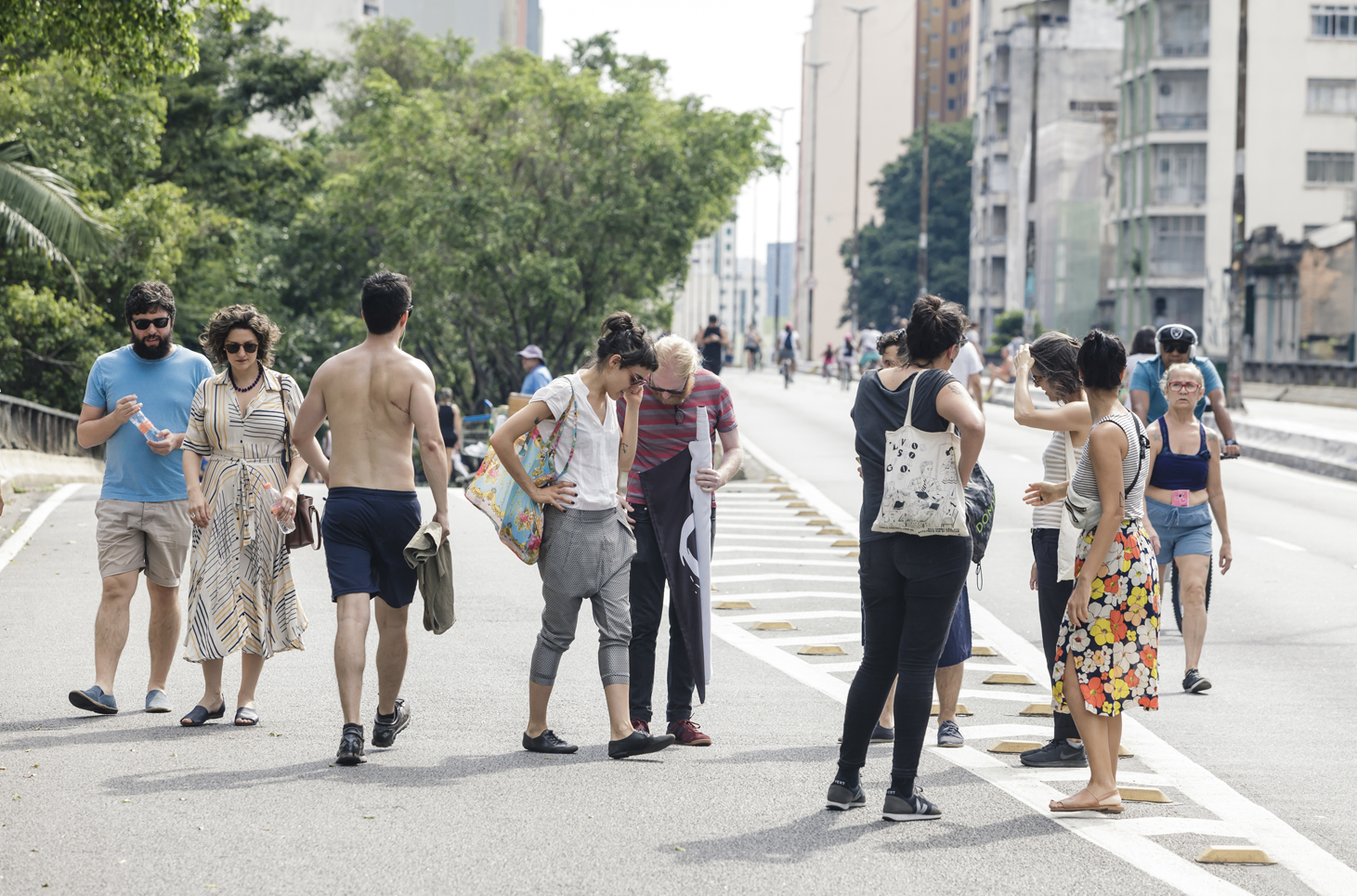
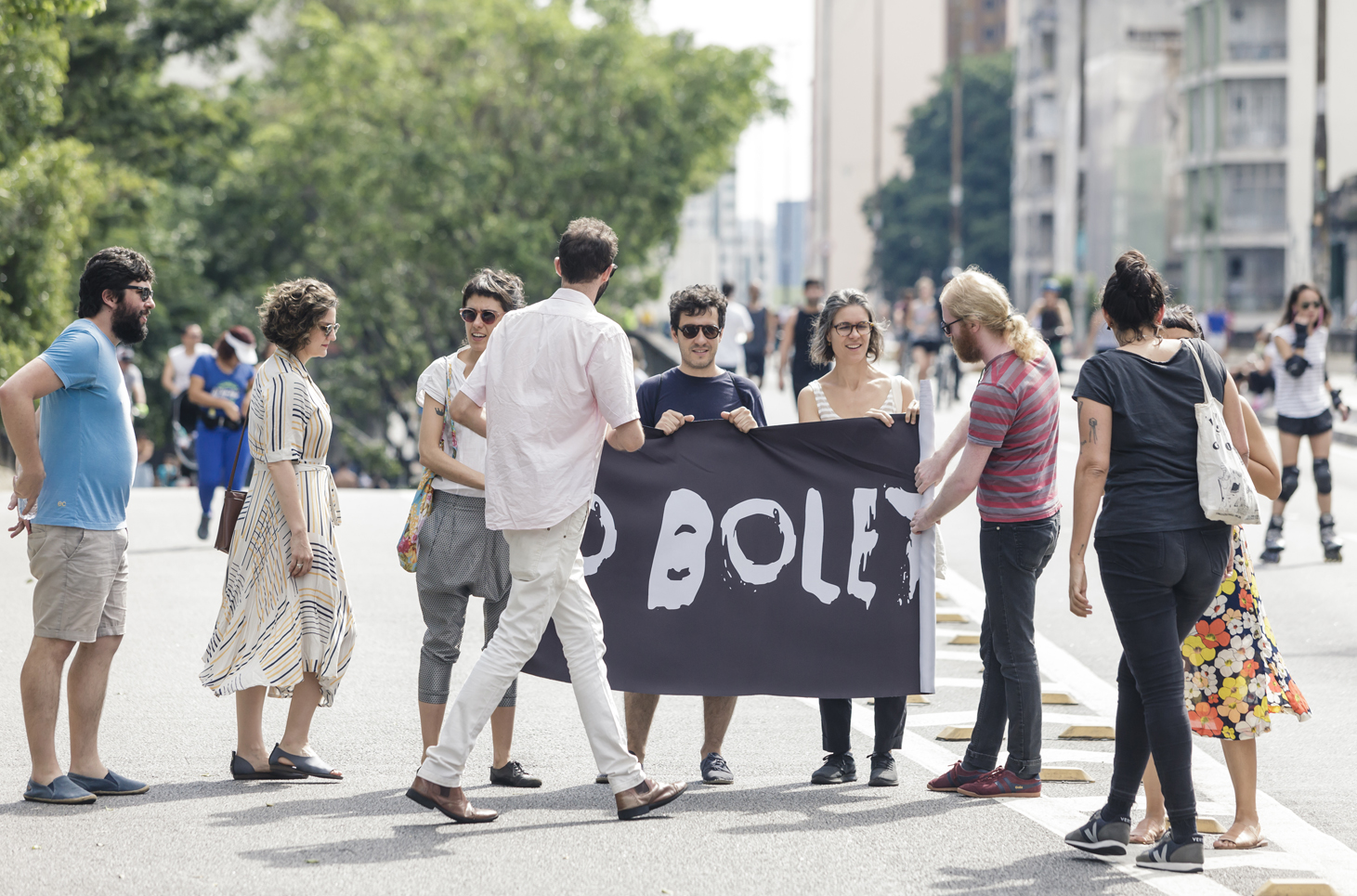
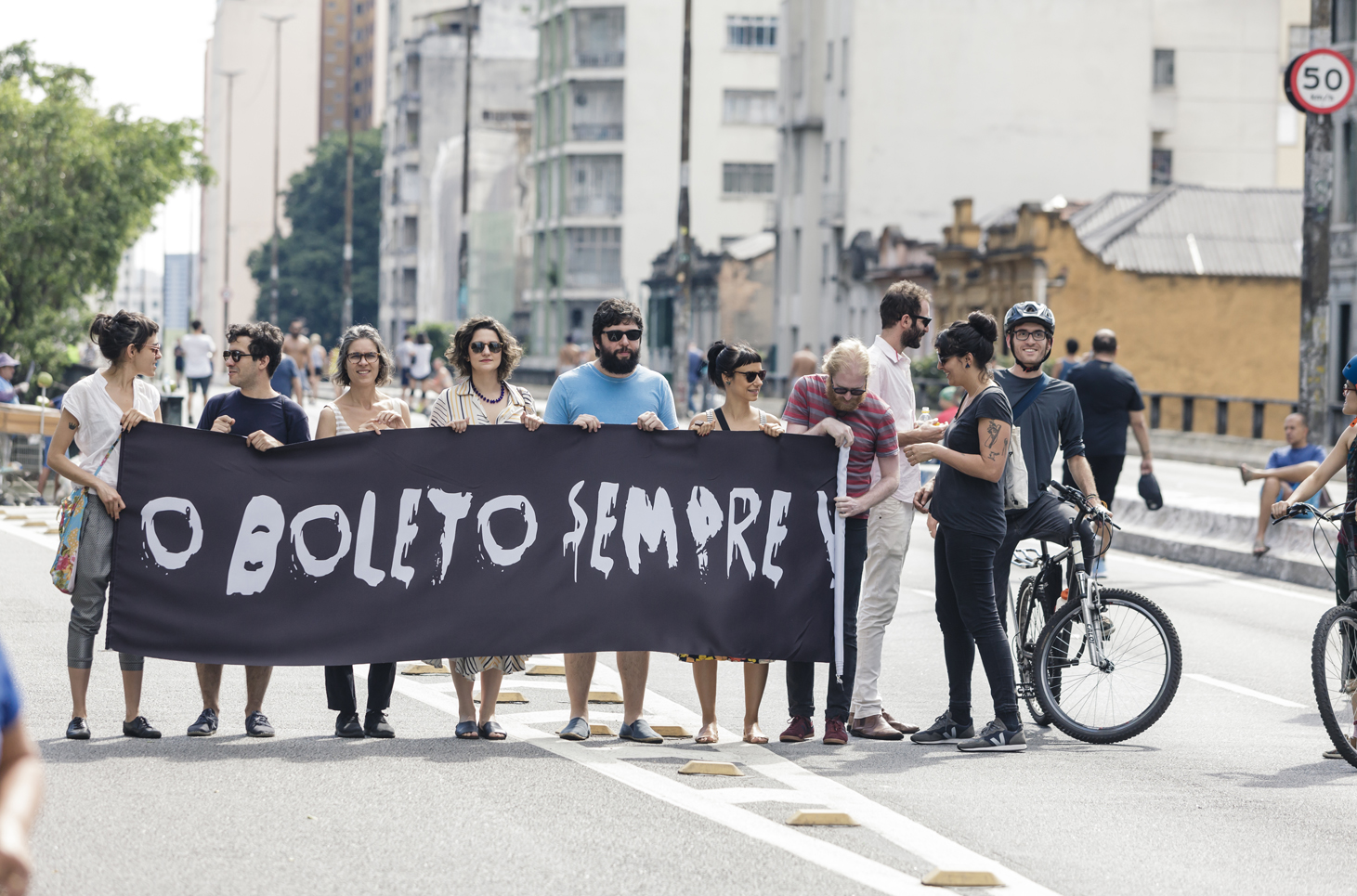
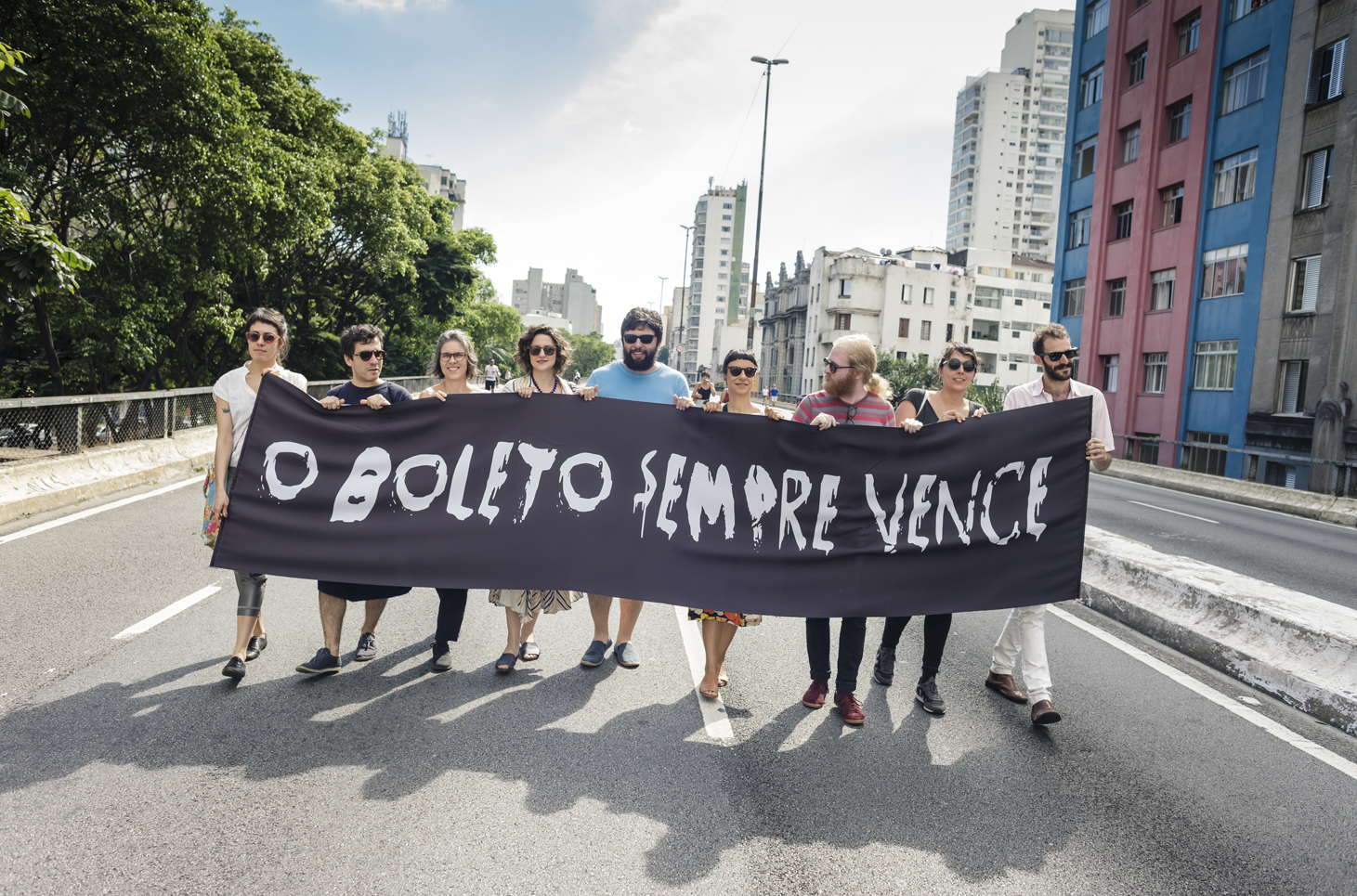
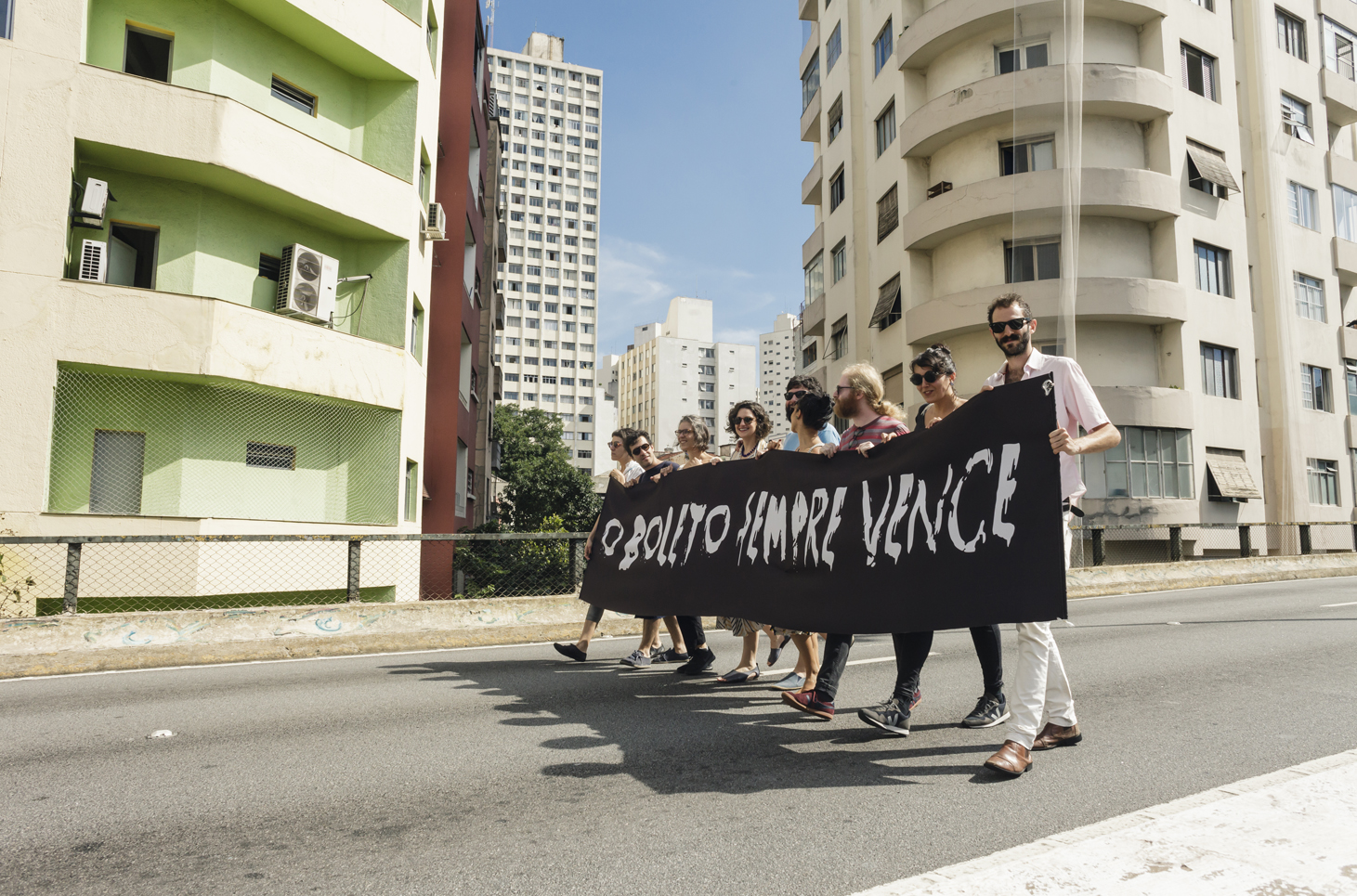
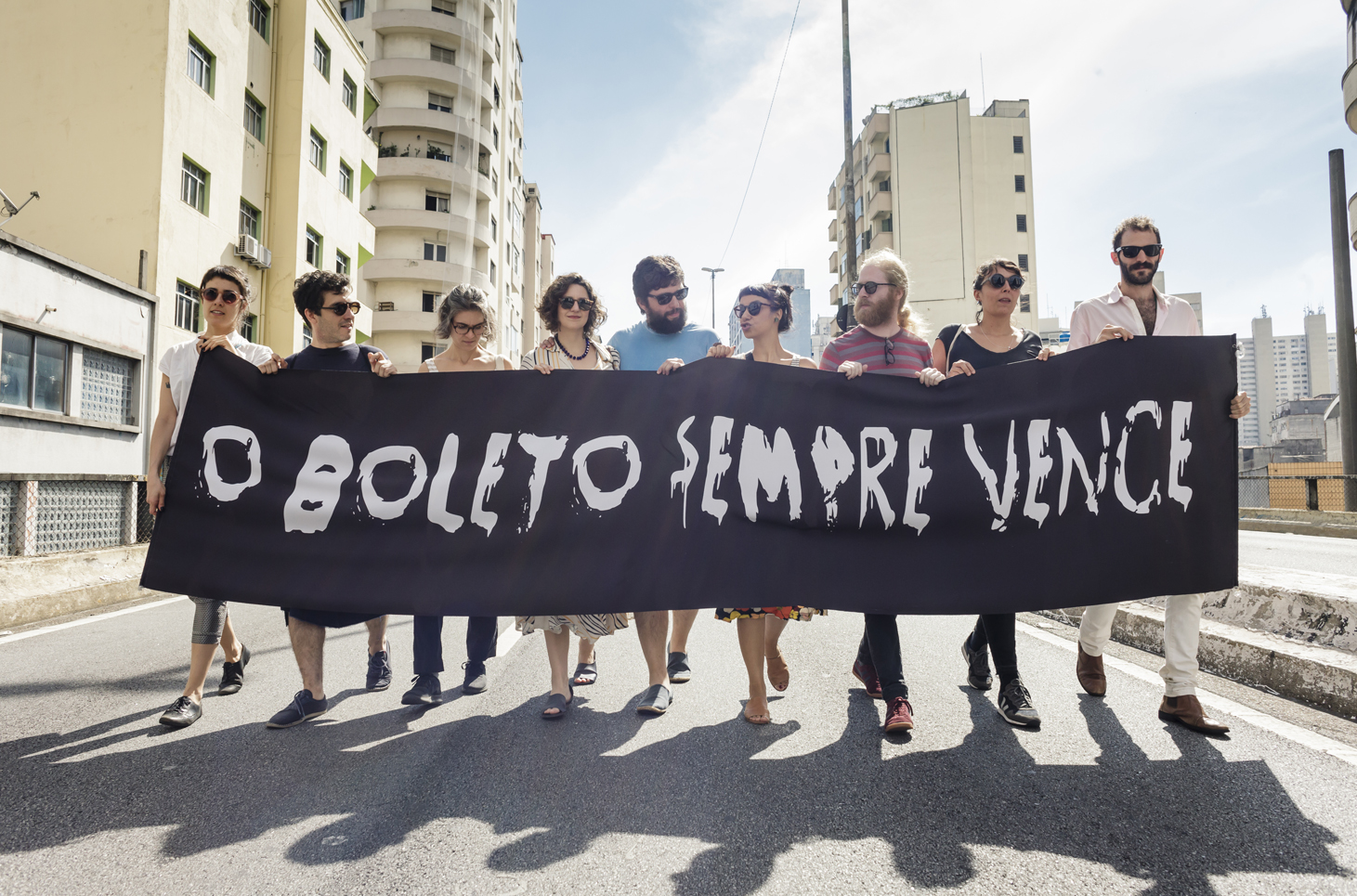


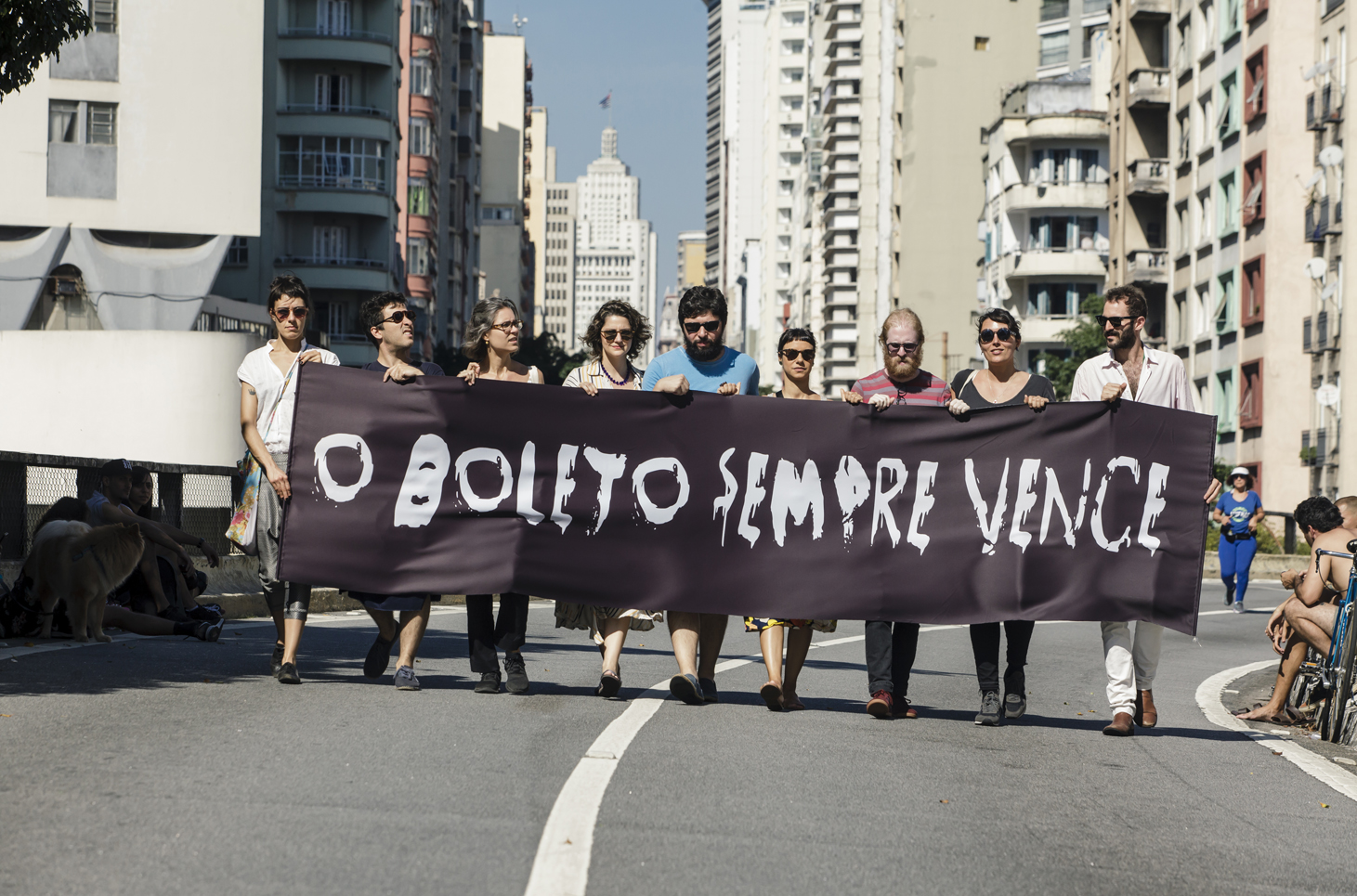
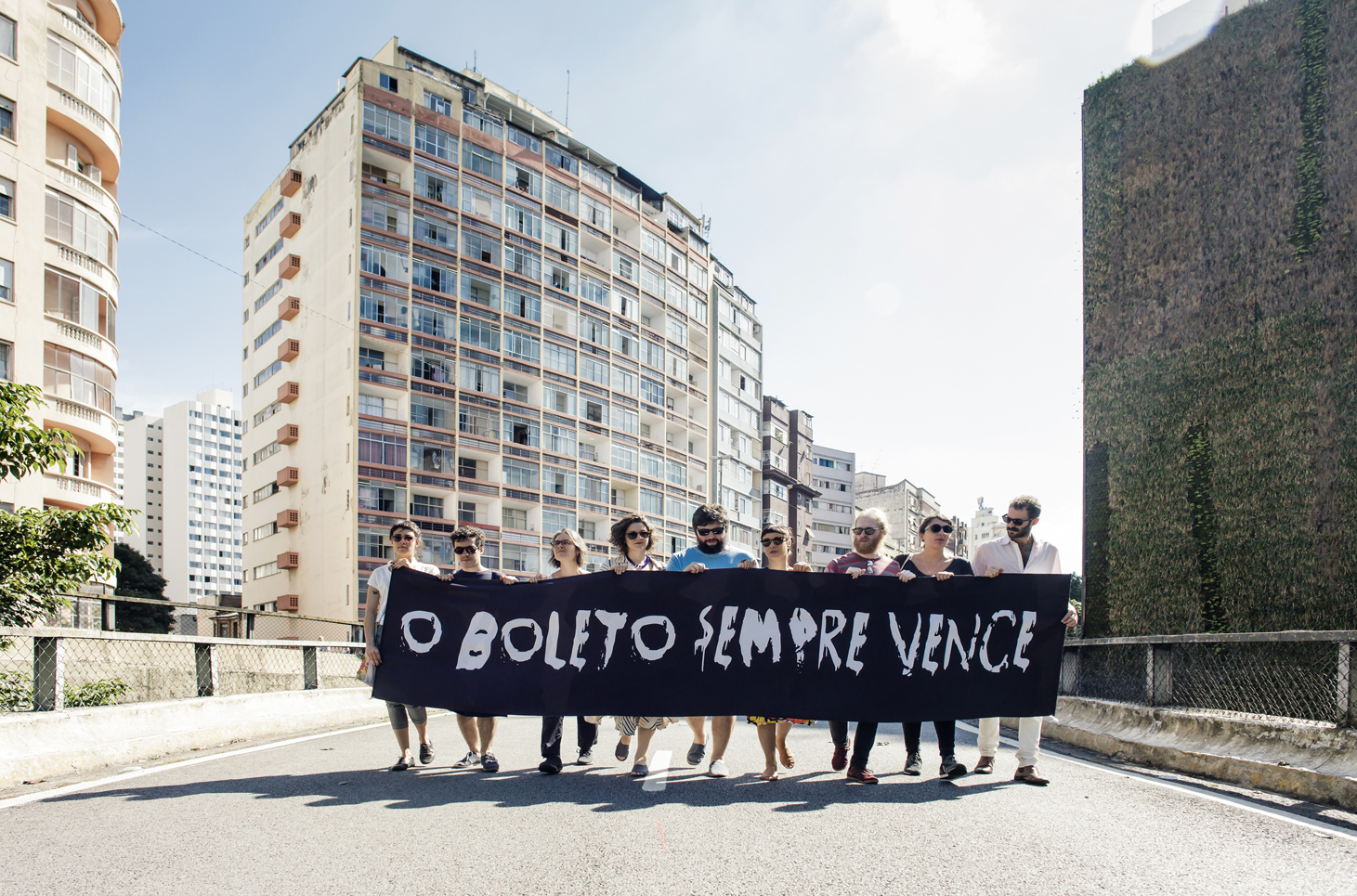
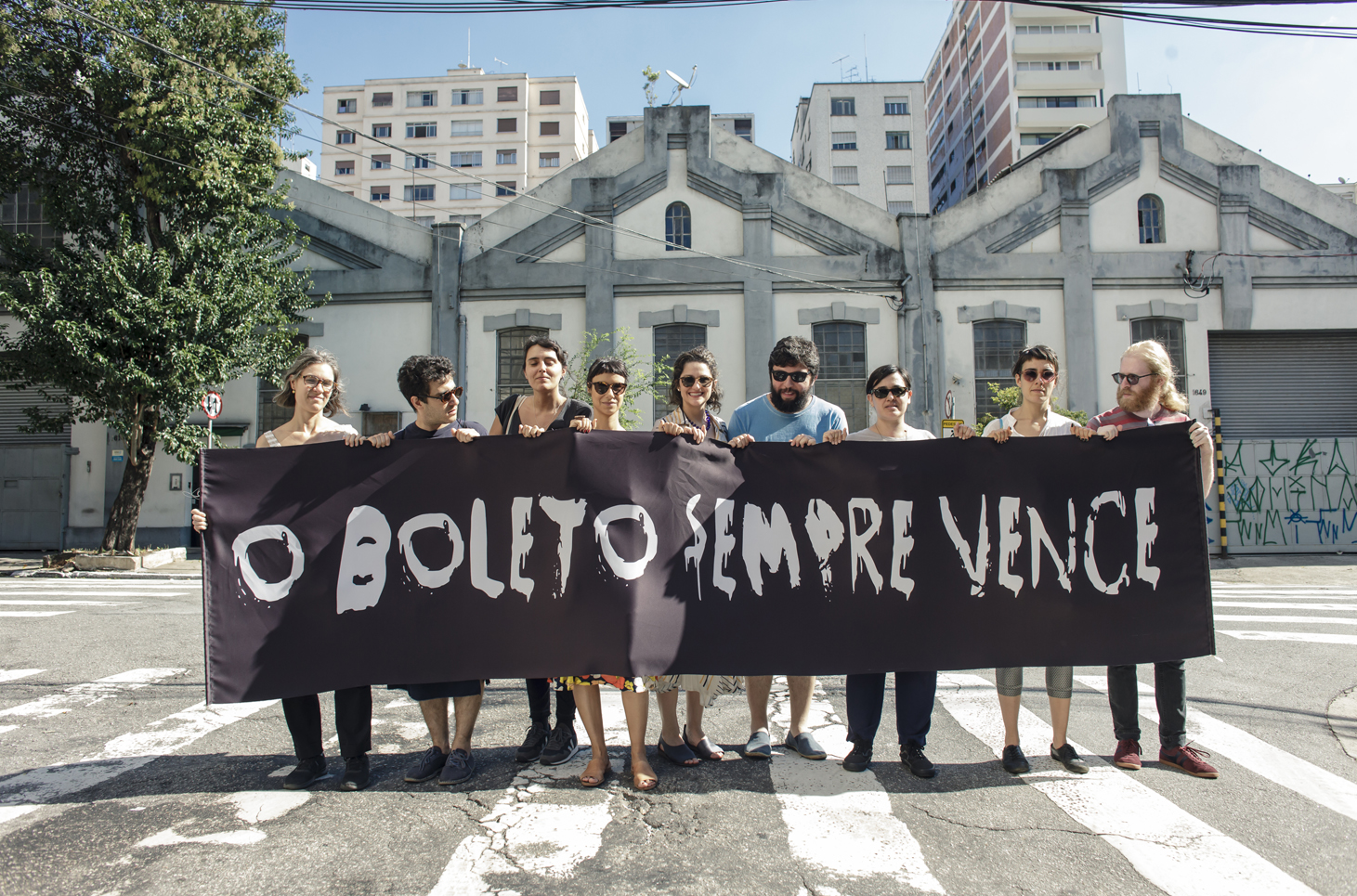
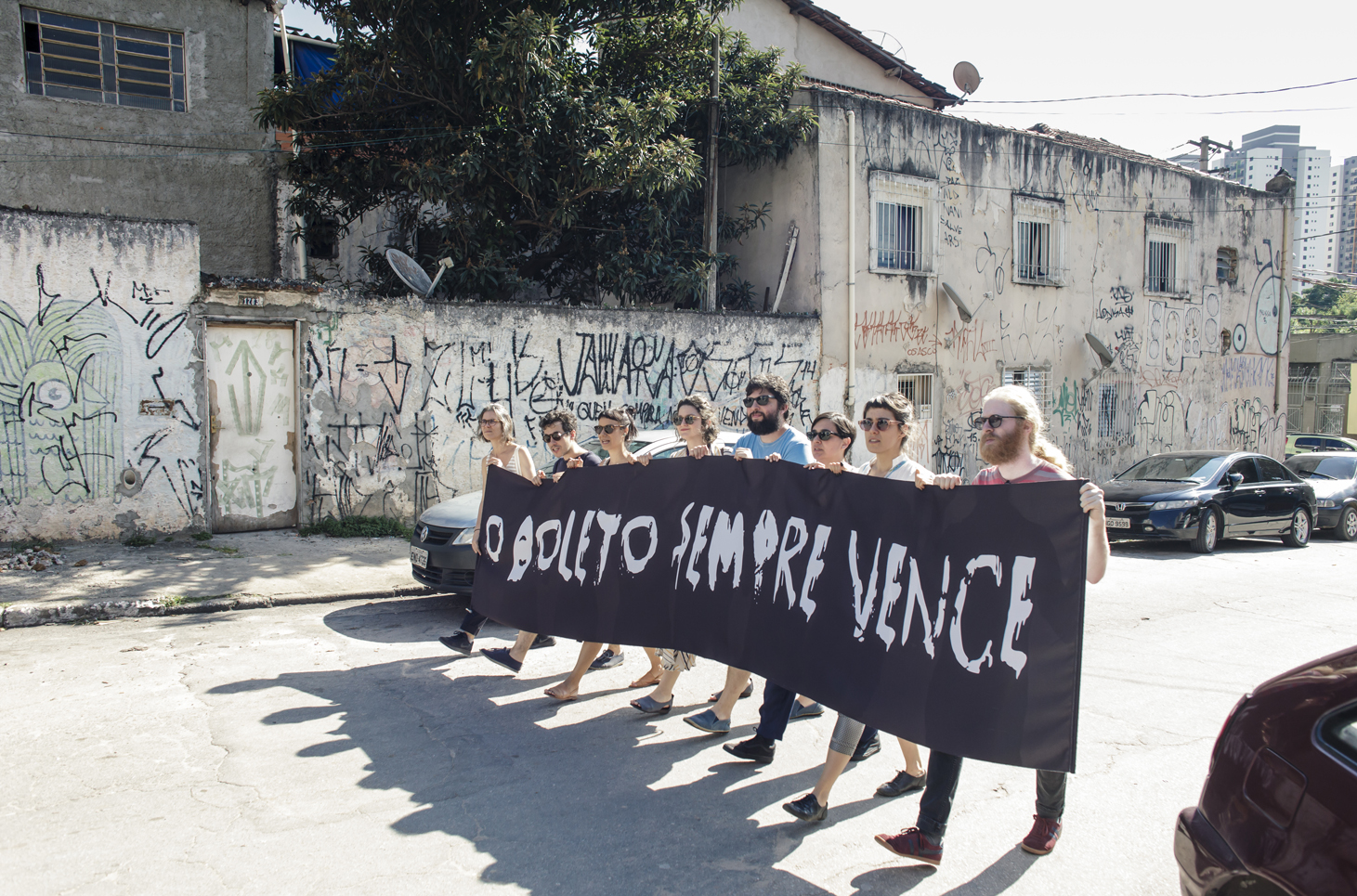
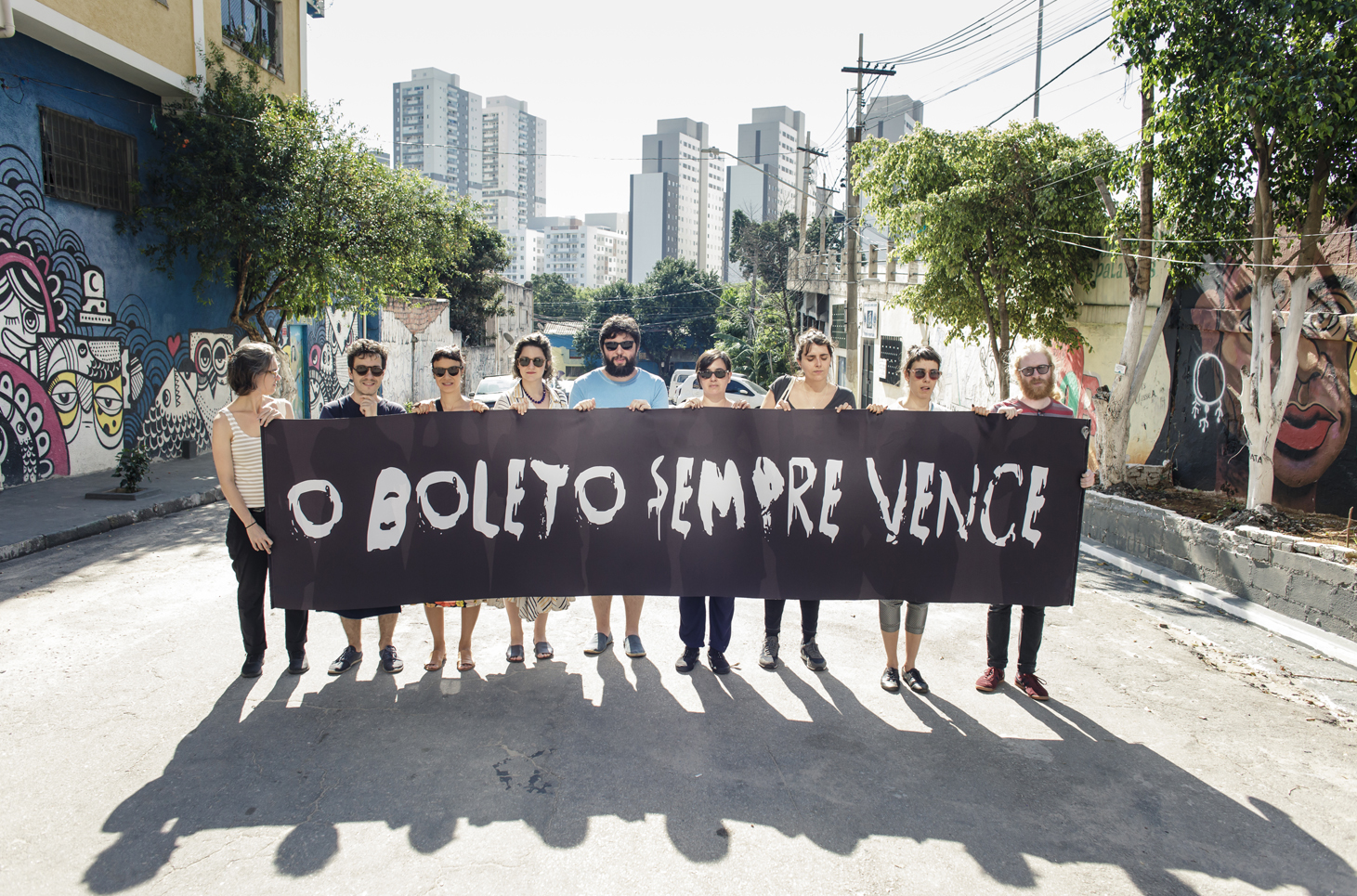
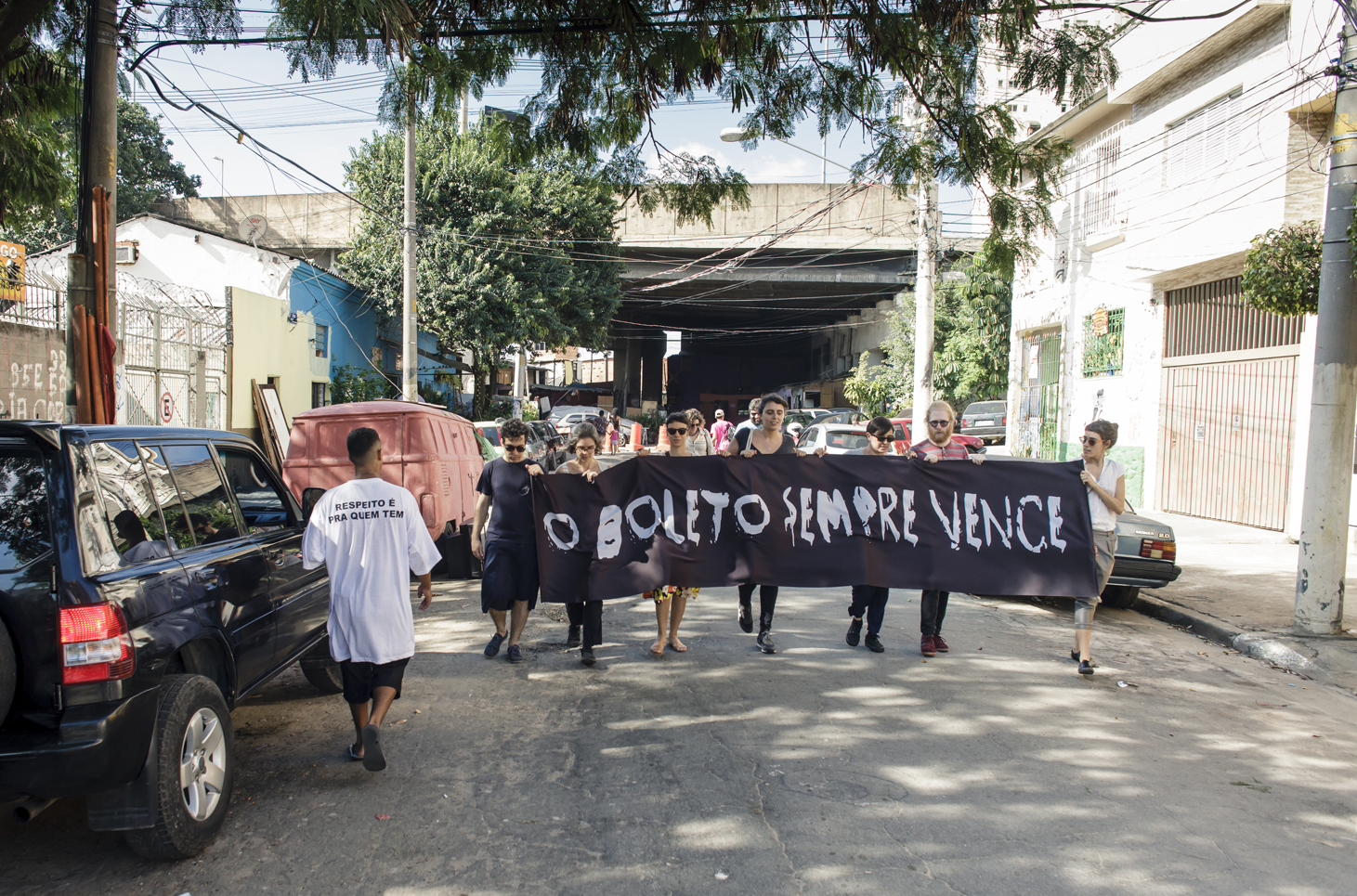
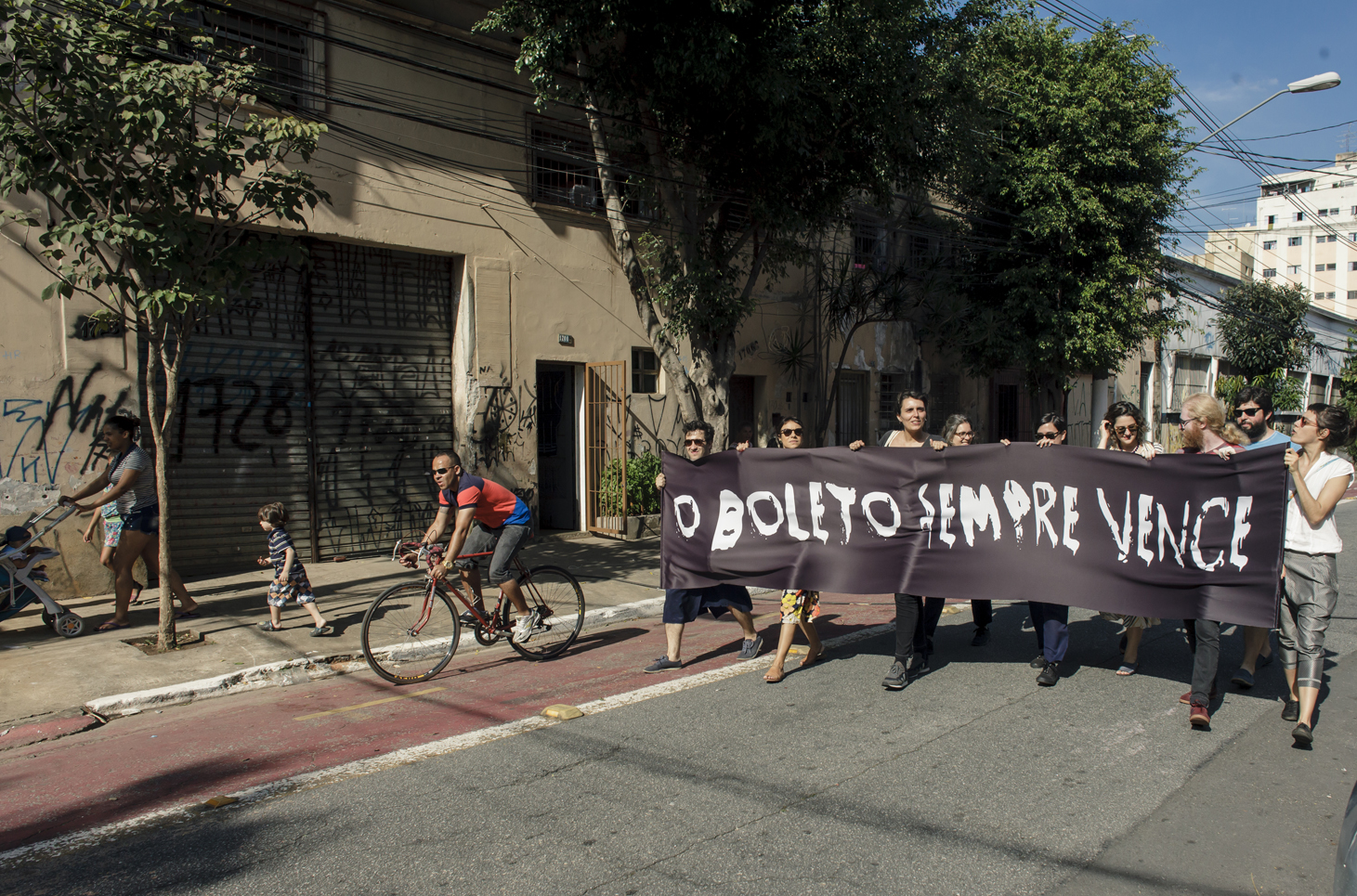

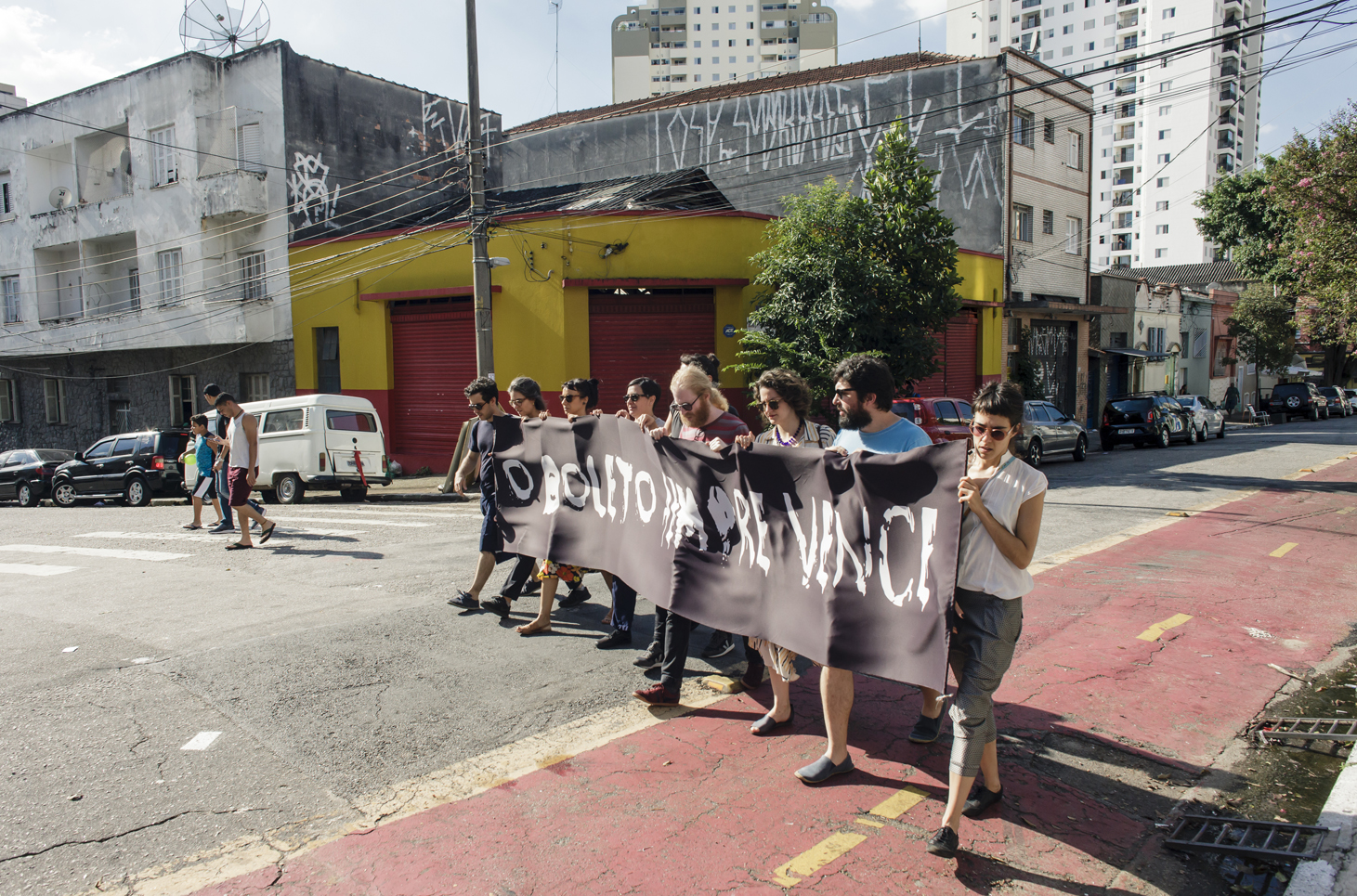
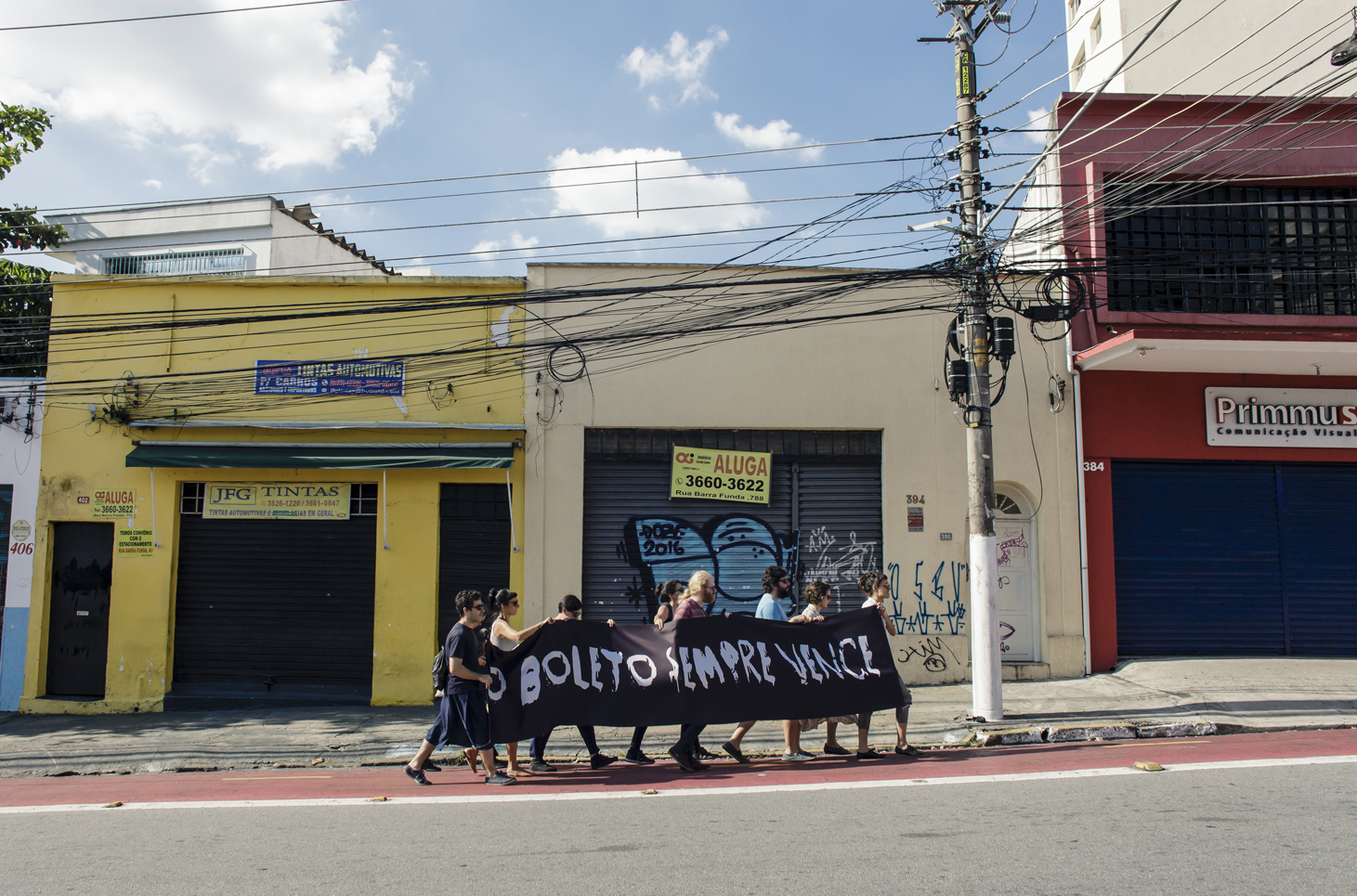
In collaboration
with Art Labour Group
Urban intervention, banner (94.5 x 400 cm); essay
Urban intervention, banner (94.5 x 400 cm); essay
Art workers is the result of
an old concern about the work conditions in Art, which comes firstly as a pun
on a notebook: "O boleto sempre vence"(1).
By taking the streets on Labour Day festivities, in the form of an action which refers to an empty rally the sentence acquires different semantic contours. For those who witness the action on the street, without any clear indication of its purpose, one can allude to the apparent lack of purpose of one’s working hours: it’s about paying the bills which will, invariably, come back the following month. Yet for the public who has access to the photographic record of the action, presented as "work of art", it recalls a recurring practice in contemporary art: the dissociation between symbolic and financial return in exchange for the artistic work.
It urges to ask what the real place of art is in the organization of the working world. For the preservation of this romantic regard, upon which personal fulfilment and financial compensation are incompatible, places the artist of today in the avant-garde of a capitalism which is eminently symbolic, and whose greatest asset is creativity. Furthermore, it assures the perpetuation of an excluding and elitist art milieu, restricted to the very few who, relying on alternative income sources, are able to go on receiving nothing but applause.
The essential aspect of Art workers is not, however, in the action or in its record, but in the group that came out of it. "Art Labour" has gathered, throughout many meetings in 2019, artists, curators, researchers, designers, producers, actors and educators, all interested in discussing in depth the work conditions in the field of cultural production, in Brazil and abroad.
•••
By taking the streets on Labour Day festivities, in the form of an action which refers to an empty rally the sentence acquires different semantic contours. For those who witness the action on the street, without any clear indication of its purpose, one can allude to the apparent lack of purpose of one’s working hours: it’s about paying the bills which will, invariably, come back the following month. Yet for the public who has access to the photographic record of the action, presented as "work of art", it recalls a recurring practice in contemporary art: the dissociation between symbolic and financial return in exchange for the artistic work.
It urges to ask what the real place of art is in the organization of the working world. For the preservation of this romantic regard, upon which personal fulfilment and financial compensation are incompatible, places the artist of today in the avant-garde of a capitalism which is eminently symbolic, and whose greatest asset is creativity. Furthermore, it assures the perpetuation of an excluding and elitist art milieu, restricted to the very few who, relying on alternative income sources, are able to go on receiving nothing but applause.
The essential aspect of Art workers is not, however, in the action or in its record, but in the group that came out of it. "Art Labour" has gathered, throughout many meetings in 2019, artists, curators, researchers, designers, producers, actors and educators, all interested in discussing in depth the work conditions in the field of cultural production, in Brazil and abroad.
•••
1 "The
bills are always due" – in Portuguese the same verb applies to a 'bill’s due
date' or 'a win'
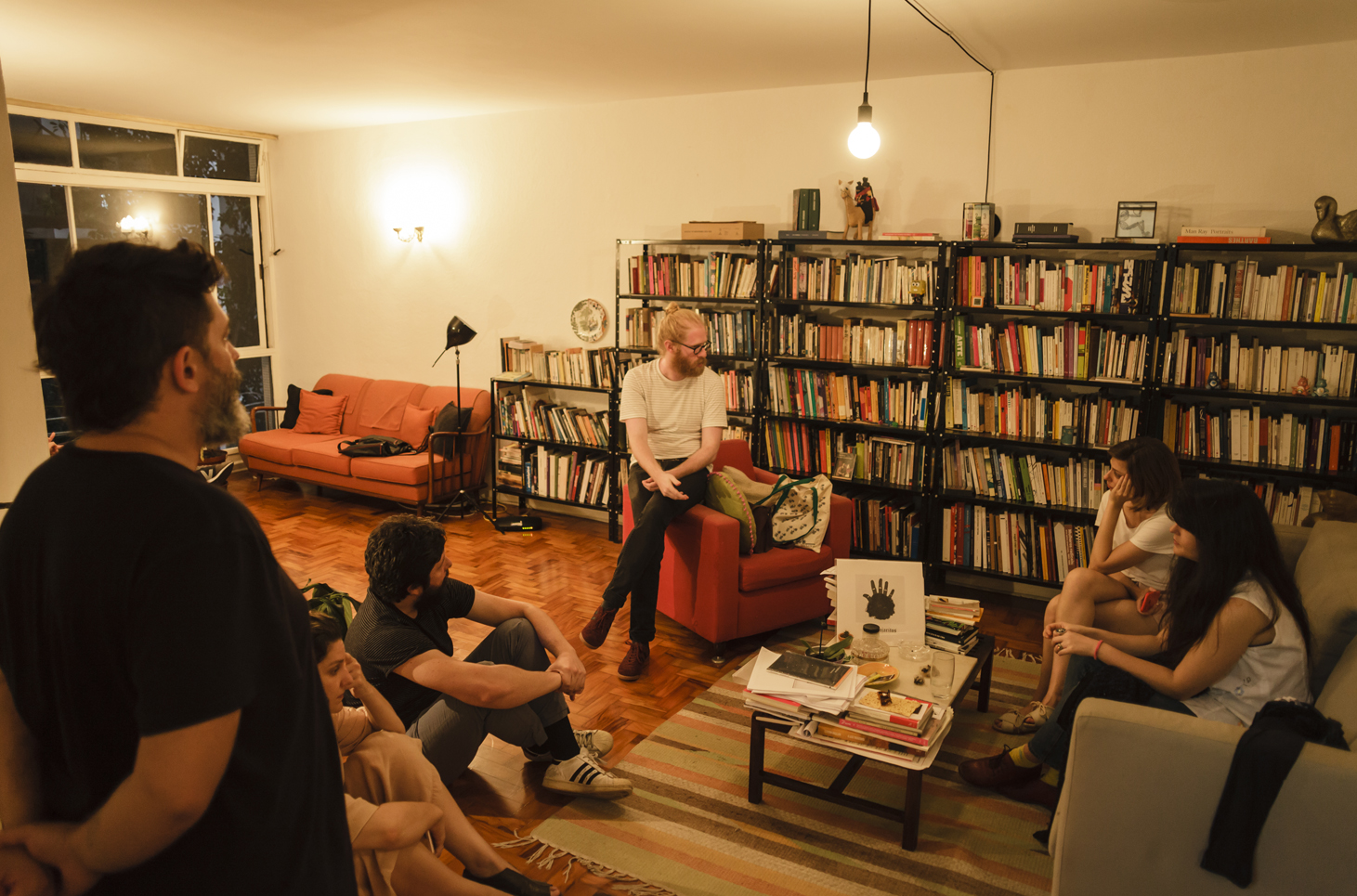

Video > Insertion of the banner in the PIPA 2019 Prize promotional clip
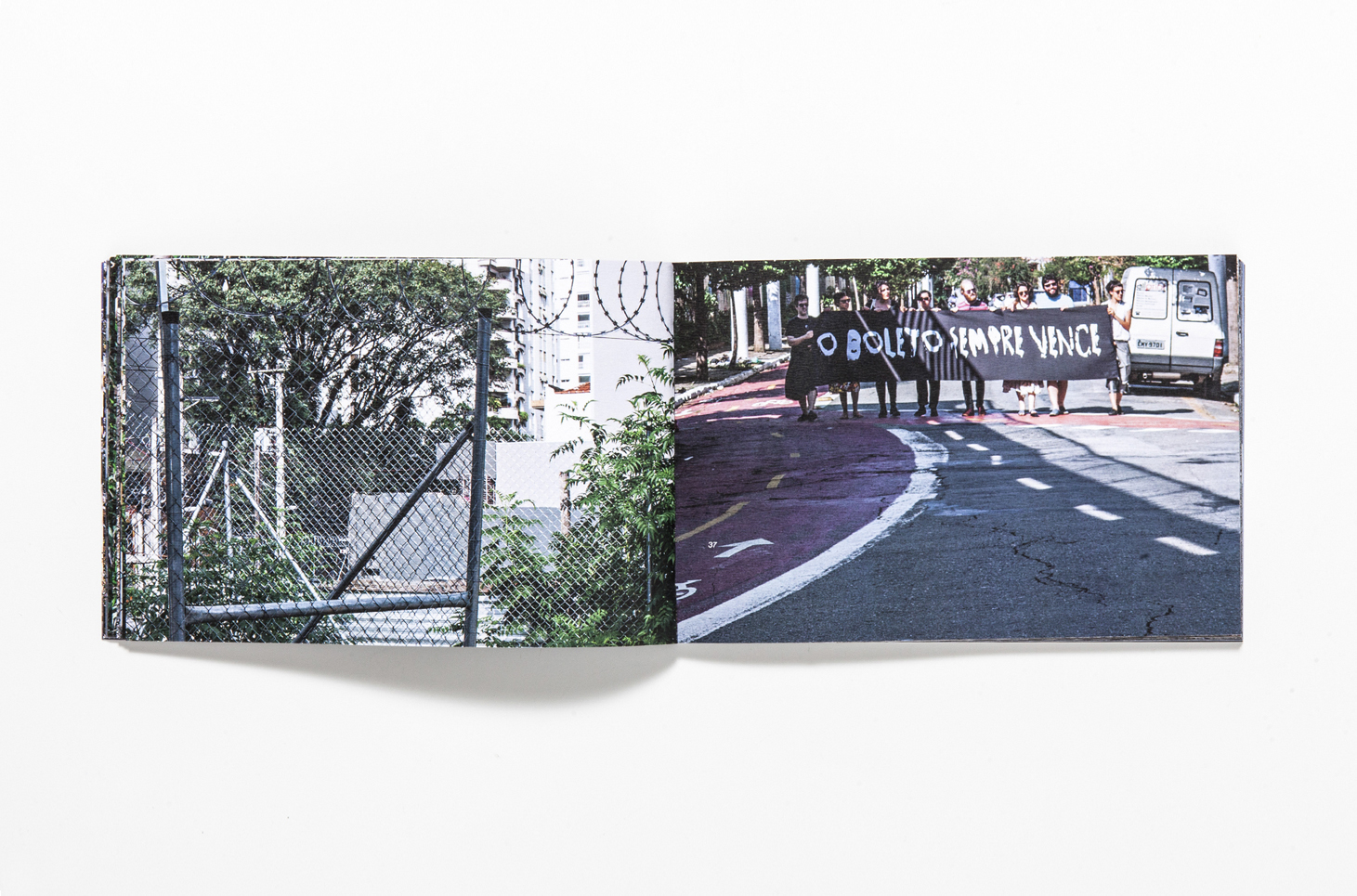
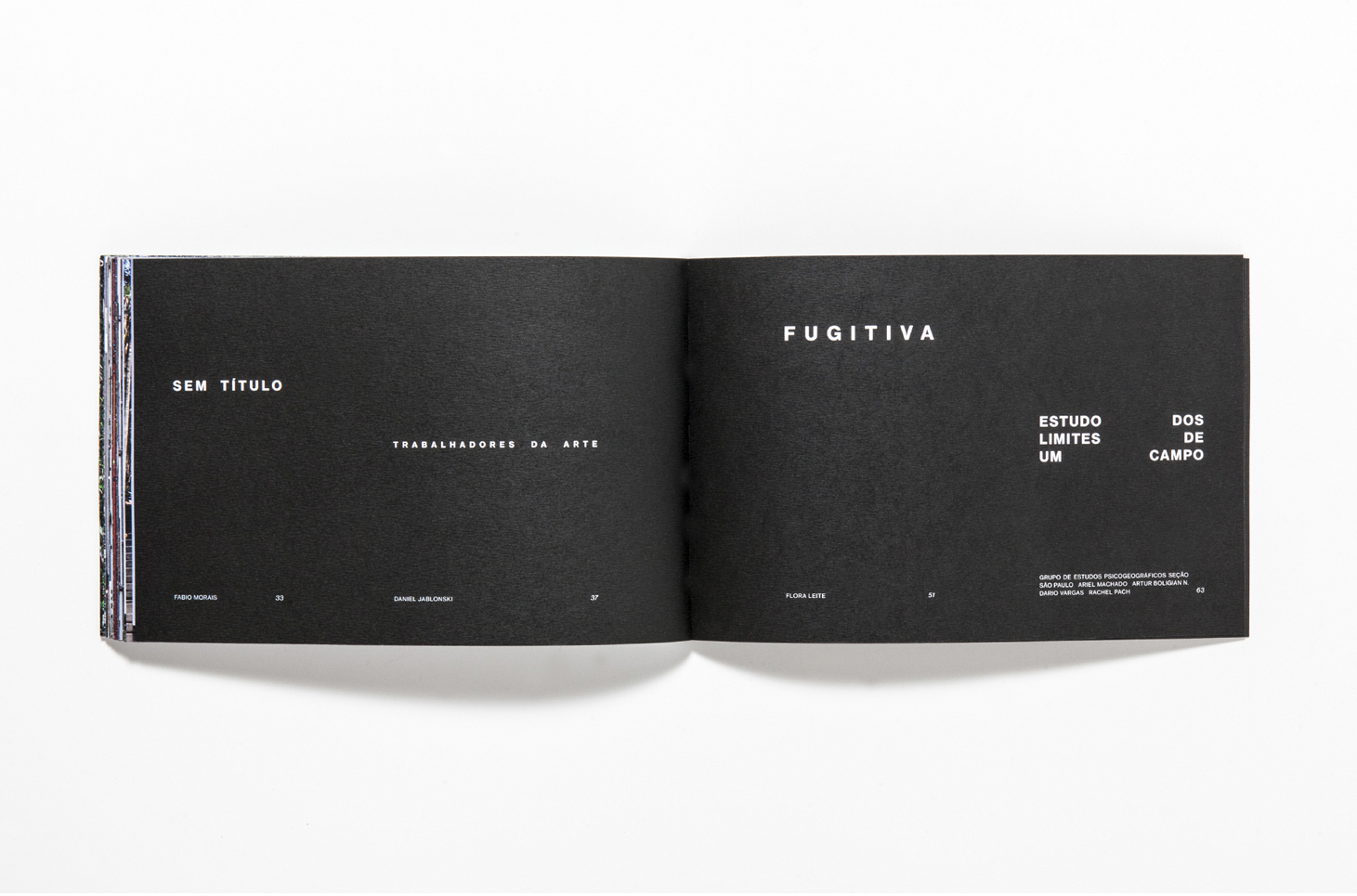
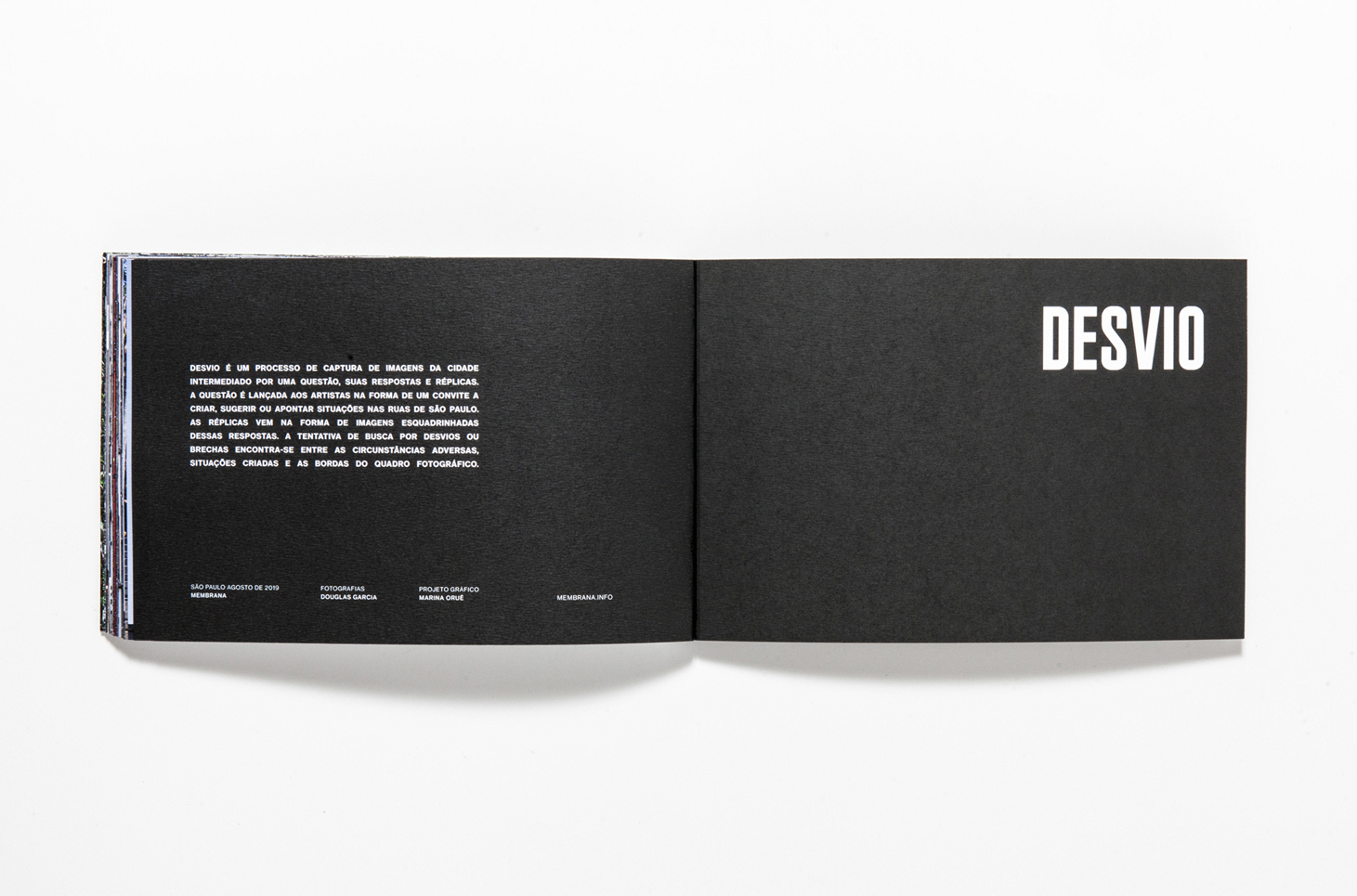


Art workers for Desvio
Source > Desvio – Book of photographs by Douglas Garcia, Edições Membrana, São Paulo, 2019
Source > Desvio – Book of photographs by Douglas Garcia, Edições Membrana, São Paulo, 2019
Public presentation of the residents of Pivô Art and
Research, 2018: André Pitol, Andrés Pasinovich, Daniel Jablonski, Eleni Bagaki,
Pedro Victor Brandão, Romain Dumesnil, followed by a conversation about the
value of artistic work, remuneration and symbolic return.
An essay published on SP-Arte Fair Magazine offers an in-depth look at the groups’ discussions
+ Writings > An Introduction to Inecomomy, 2019

